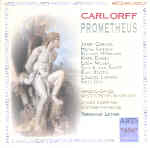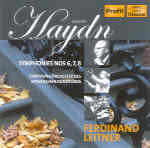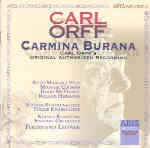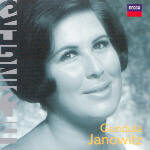

In the aftermath of Decca’s 2015 Mono Years boxed set, […]

This reissue of Orff’s “original authorized recordings” of these two sequels to Carmina burana is much more successful than the same forces’ 1973 performance of

Carl Orff’s Prometheus completes his trilogy of Greek tragedies, the two earlier works being Oedipus the Tyrant and Antigone. This is the only one actually

It may be rash to claim that the French pianist Monique Haas (1909-1987) never made a bad recording, but you won’t find one among her

This disc makes an excellent case for the necessity of the period instrument movement. There’s nothing unmusical about the performances: they are simply heavy, cute,

Billed as “Carl Orff’s Original Authorized Recording”, this 1973 performance was blown away by the similarly authorized Jochum on DG. The sound is good but

Ferdinand Leitner leads a solid, very traditional Bruckner Sixth with judiciously chosen tempos, an eloquently sung slow movement, and a touch of stodginess in the

Ferdinand Leitner’s Strauss places sonority and structure ahead of pure orchestral bravura. In his hands Till Eulenspiegel comes off as a wry and sly figure

Gundula Janowitz was admired for her pure, silvery tones–but alas, that considerable virtue isn’t enough to sustain interest throughout a 73-minute-long disc that induces boredom

Disc one begins with crown jewels from Wilhelm Kempff’s early-1950s Beethoven sonata cycle, played with gentle flair, stylish bite, and caressing micro-nuances. The pianist’s more
![]()
